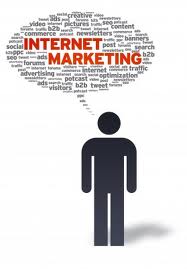Just like the rich kid who gets friends by handing out candy to the other kids in the playground, many large companies focus their resources on buying friends. The ways that brands can now invest in digital marketing has mushroomed. Such activities include:
 Search engine marketing and PPC
Search engine marketing and PPC- Banner ads
- Facebook ads
- Facebook sponsored stories
- Twitter sponsored tweets
- Purchased followers*
- Paid placement
- Affiliate marketing
- Youtube pre-rolls
- Purchased email lists
- Contest giveaways
- Heavy discounting and couponing
- Buy Buy Love….
The list goes on. With some major companies spending a quarter of their budget on digital marketing, there is a growing sophistication about what works and what doesn’t. And at what cost, etc. Coaxed by agencies whose revenues depend on their ability to encourage “media spend,” the bulk of executive committee discussion about digital marketing remains focused on the return on investment with regard to the digital spend. In other words, the traditional mindset of trying reach eyeballs.
Celeb Endorsements
Another way that brands try to buy fans and friends is using personality or celebrity endorsements. As I have argued in the past, I believe that few and fewer people are swayed by celebrity endorsements. Is it credible that just because a sports star or super model has been paid millions that he/she truthfully loves the product or, even less likely, believes in its brand values? A celebrity endorsement is nothing other than another way to buy someone’s love. Using the equity of the star, the brand scripts the celebrity’s speech, pays top dollar for a “perfect” production and then spends heavily to get the video seen. Markets, such as India (especially cricket and Bollywood) and China, remain strong consumers of these celebrity endorsements. I believe this is merely a reflection of the marketing maturity of the country. For the more sophisticated consumer, the celeb is less effective. Not to say that traditional advertising and the regular television 30 second spots are dead; however, the alignment of the stars (to use a phrase) with the brand’s values is exceedingly important in a world where transparency and authenticity are the maître d’oeuvre of the digital consumer.
Traditional mindset = traditional headaches
The challenge is that these acquisitive types of digital marketing activities represent manifestations of the traditional marketing mindset. By buying the “love,” the very nature of the seduction renders the traction and longevity of the relationship tenuous, at best. {Please click to tweet if you agree!} Such activites will engender two certain realities or business headaches:
- The need to anniversary the growth in friends or followers (much like having to anniversary a sales performance), will cost more each year [at least for the foreseeable future]
- The ability to transform and convert into loyal clients will be weak. Hence, the reference to emptiness. You buy love, you get emptiness.

The real deal is that you need to have your customers (and, why not, famous people and celebrities, too) love the product. You need customer to love it to buy it, not buy them to love it. {Please tweet this!} Of course, you do need to get your word out there and that means creating awareness. However, if the only way to feed the beast is by buying ad space (in whatever form), the odds of long-term sustainability of that product are more than likely to decrease. Just like the rich kid in the playground, the friends won’t be there for long!
And for good measure, the inspiration for this post, here’s an early rendition of Bye Bye Love by the Everly Brothers.
*I would argue that just churning through people on Twitter to gain a follow back (what I call the “Cyclers”) is a similarly vain exercise … I wrote a post about the 7 archetypes of Twitter profiles out there, and the Cyclers who spend time following people just to attract a follower who automatically follows back seems like an exercise in “buying love.”
Your thoughts ?












Some companies still believe that “social media” is still the panacea to their brand weakness. They believe that if they run their own Facebook page or post incessantly via Twitter then all their woes will vanish. You can’t buy brand engagement via celebrity endorsement but neither can you force it through sheer force of your own social media out-pourings. When your customers really want to Tweet about you or post your images on Pinterest then the value of your brand might just be growing towards the value that you think it is.
Interesting post. When I teach digital strategies I always talk a lot about mission and vision and why they actually exists. From my experience brands that know their story well and know who their audience are are excellent digital communicators. When a brand is not sure about their brand story, the ‘why’ and who they are targeting is all gets really hard for them to write anything inspiring online.
I’ve tweeted this before: “Your online voice is an extension of your or your brands belief and values.”
Thank you! Sofie